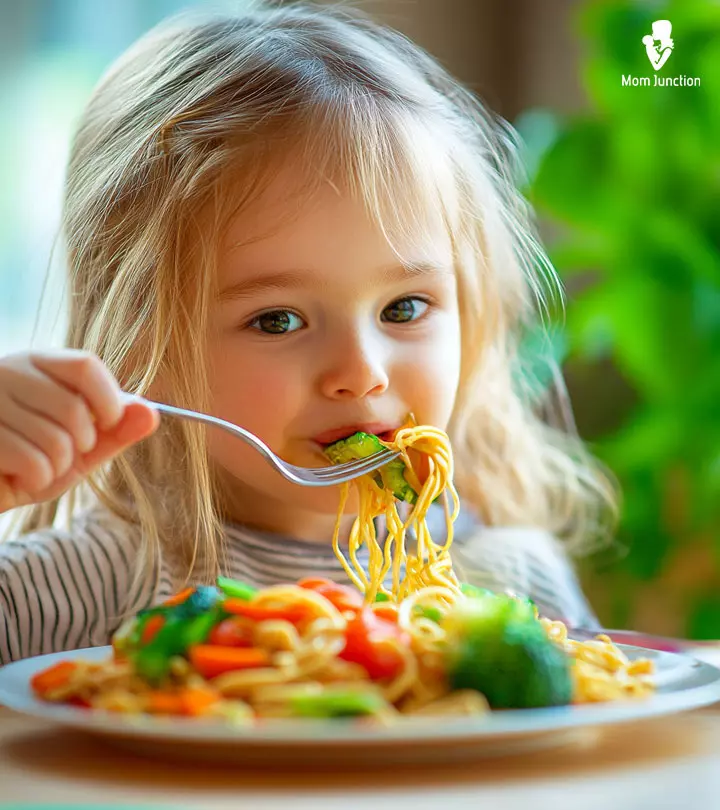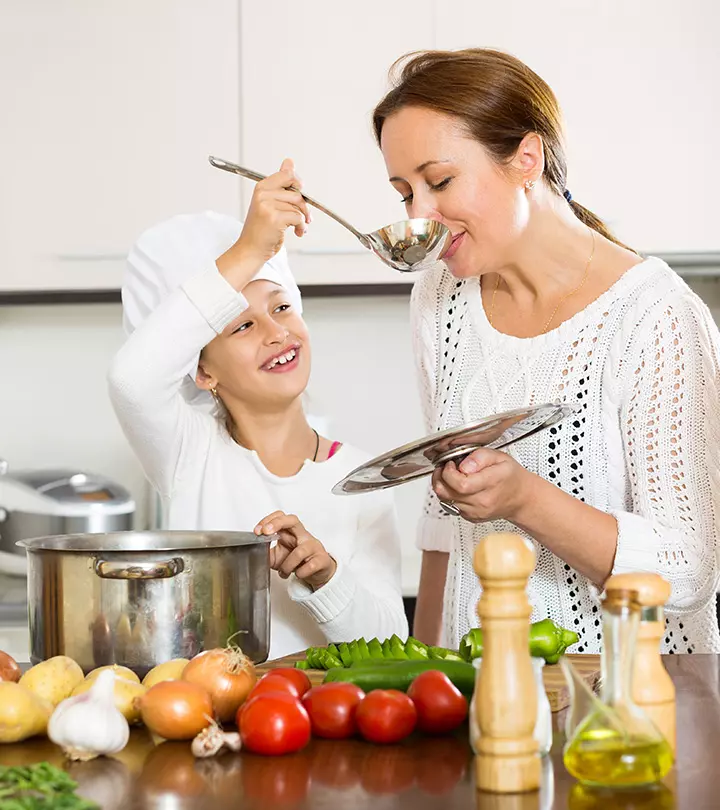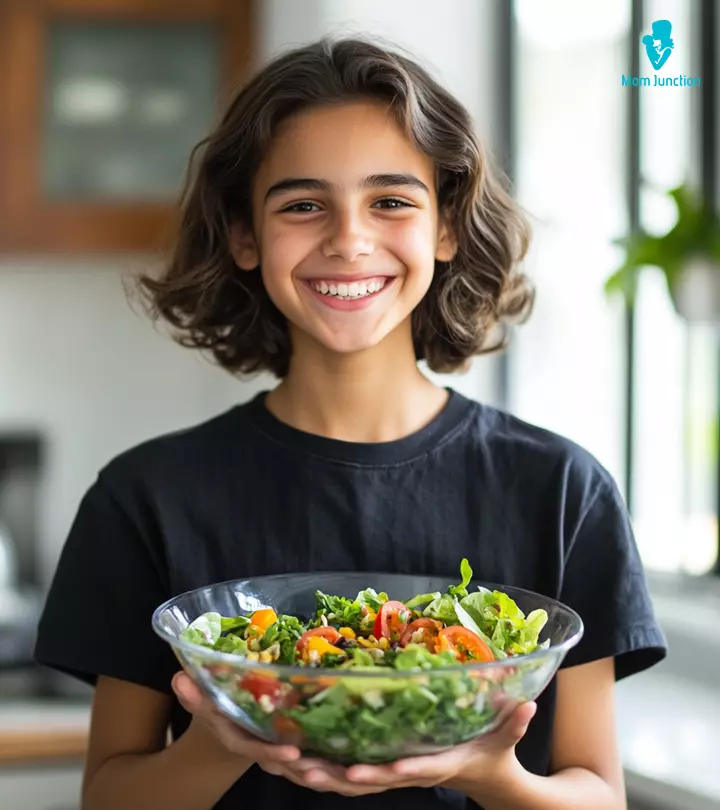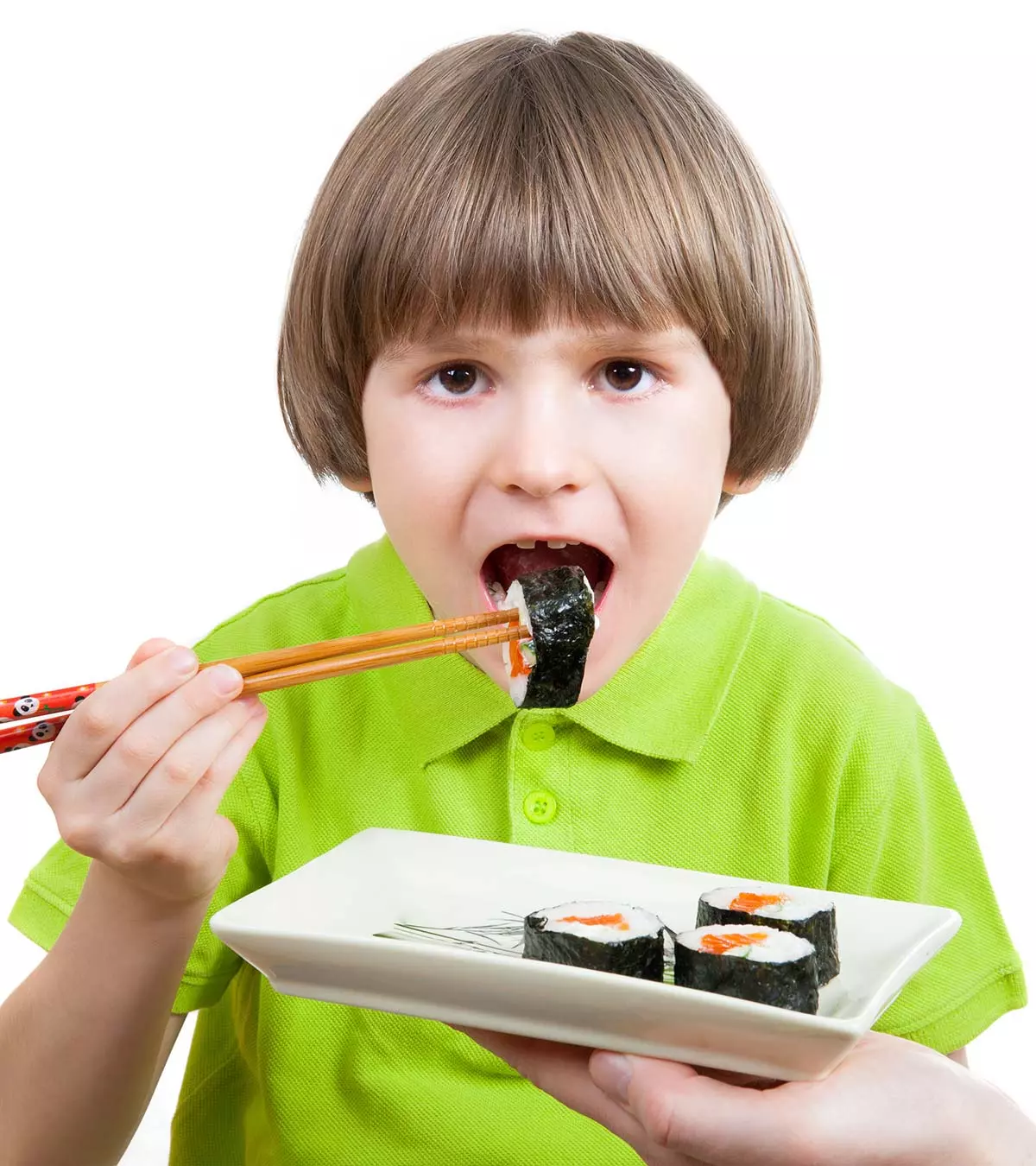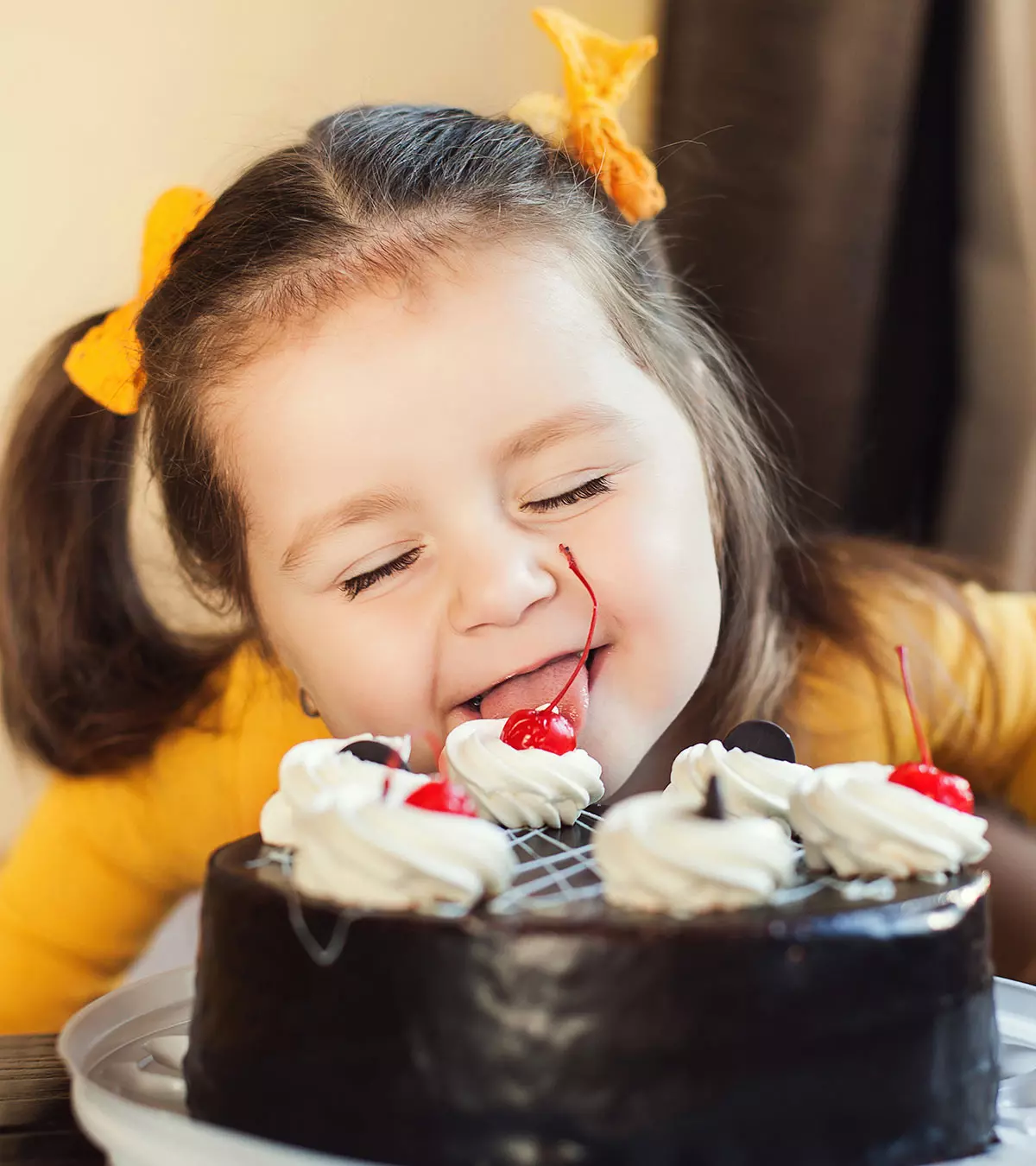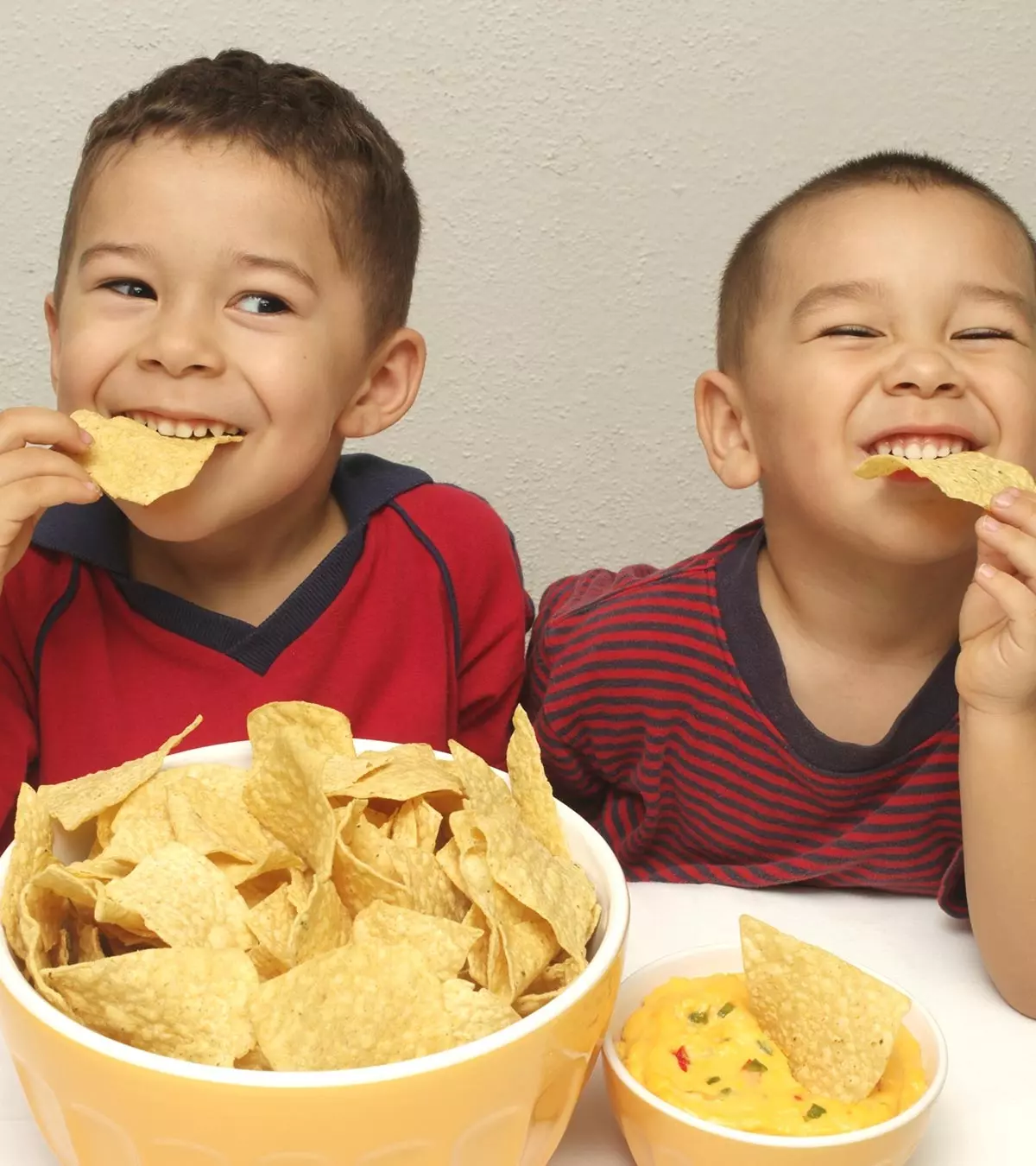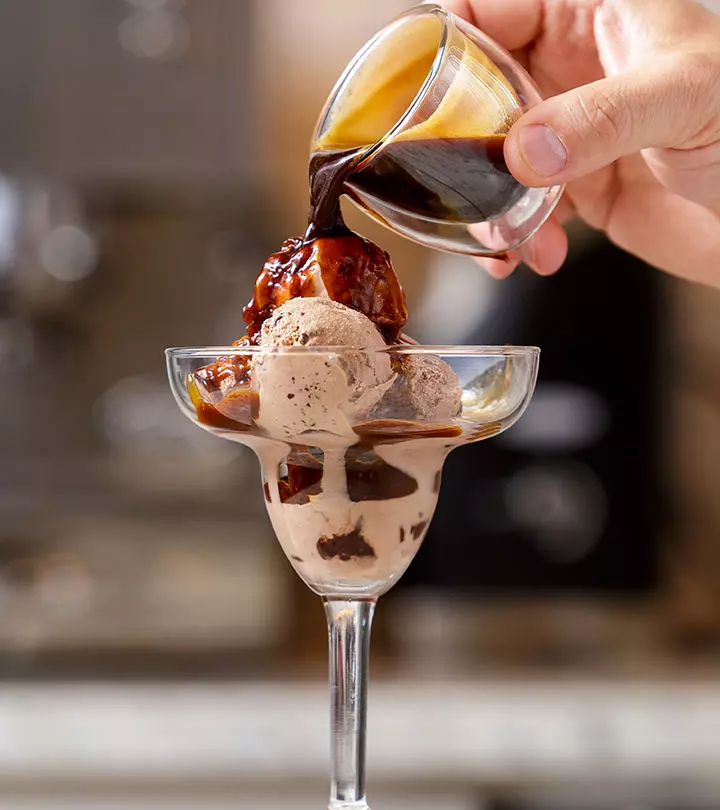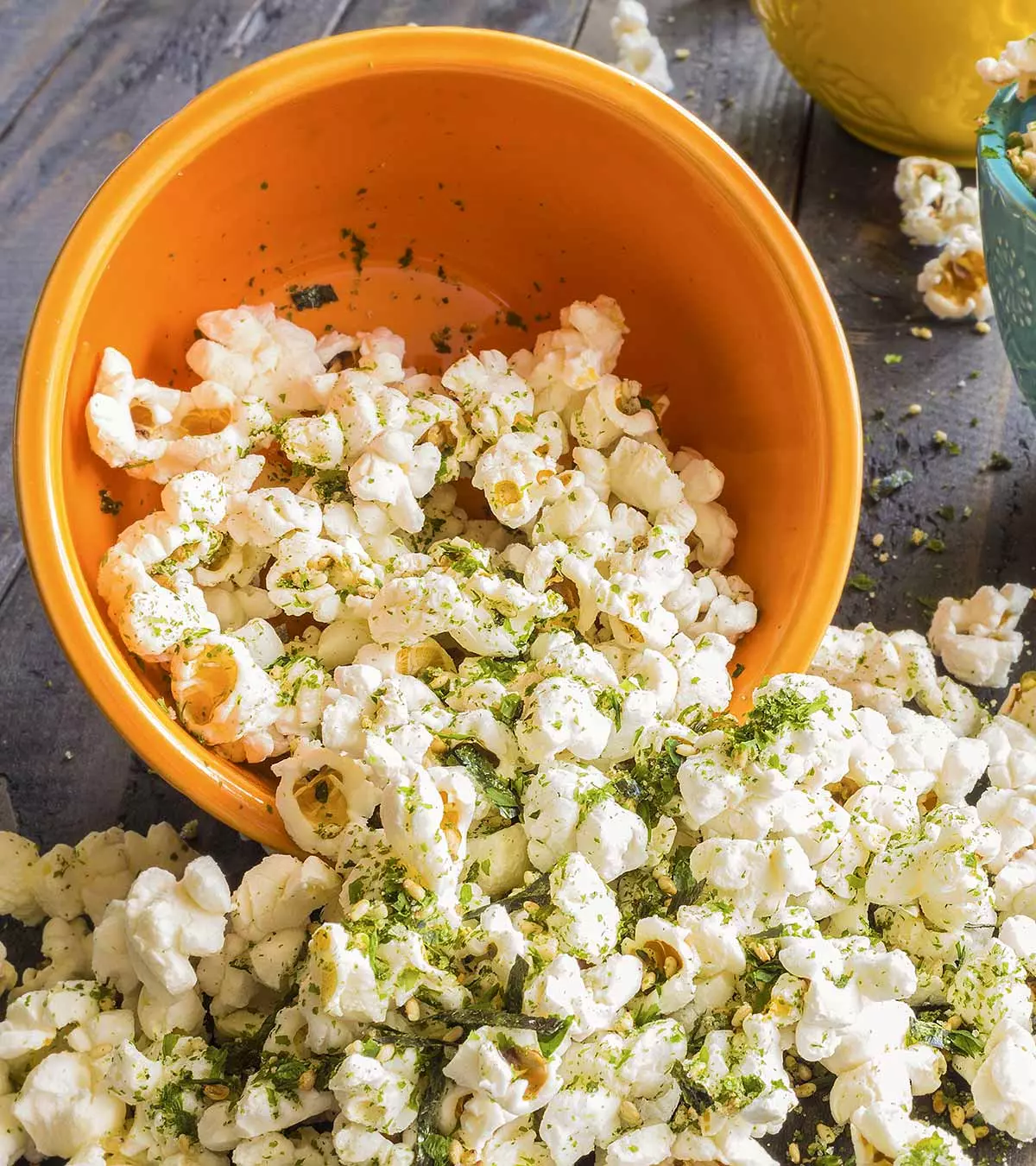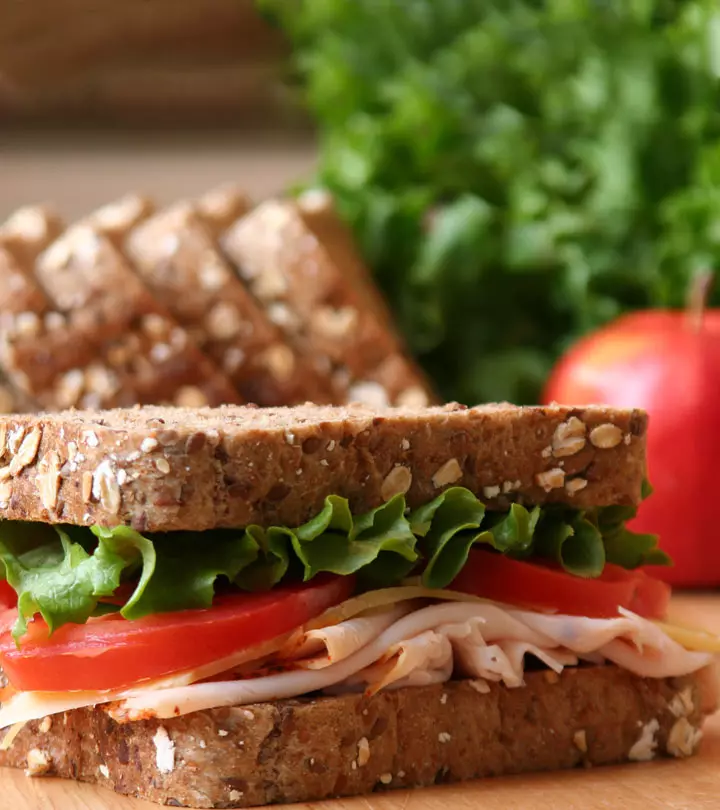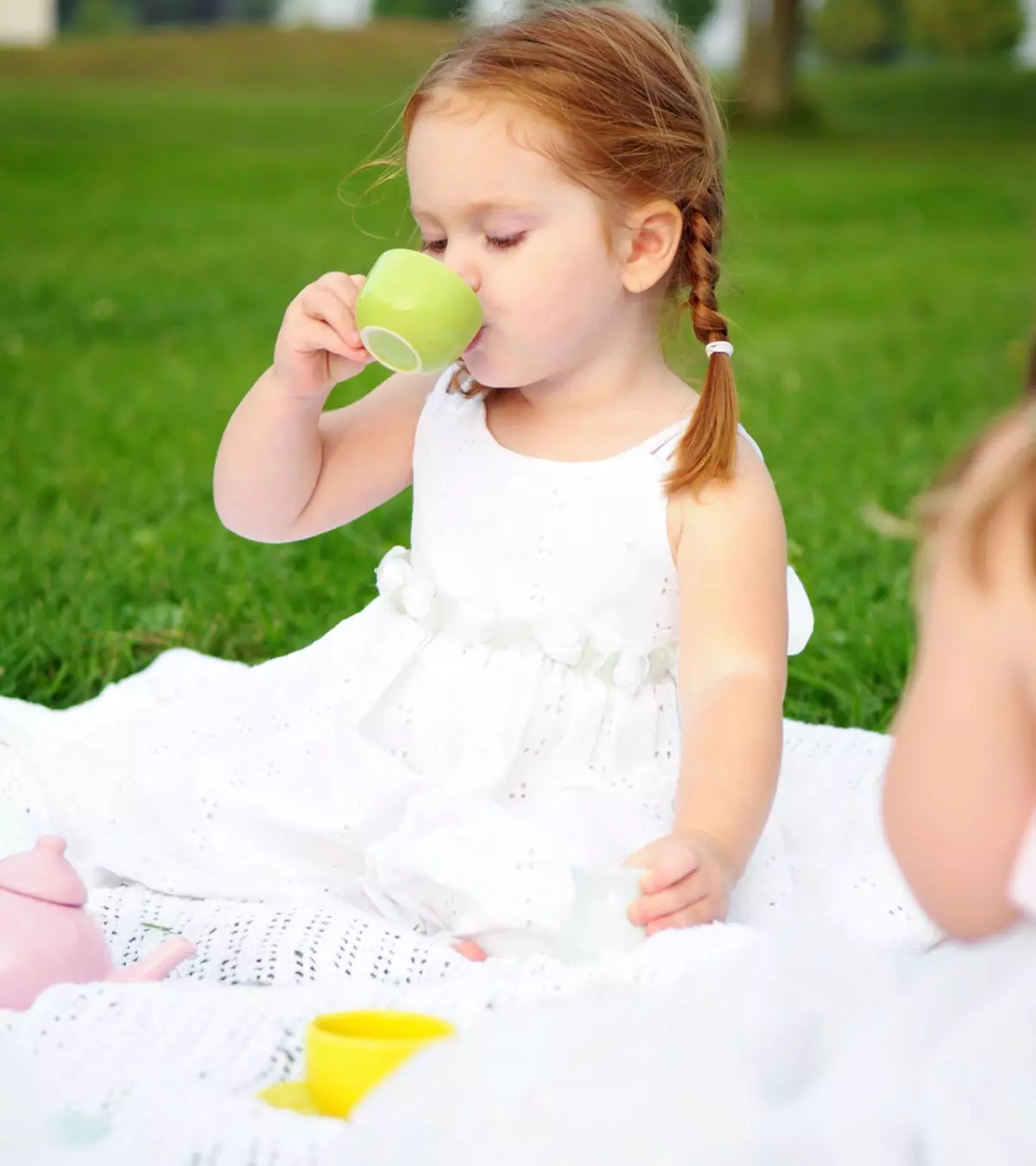
Image: iStock
Tea is believed to have several health benefits. However, it may not be safe for you to consider tea for kids. The tea we usually make contains caffeine and refined sugar, which are not recommended in excess amounts, especially for children. Plunge into this post as we tell you whether or not tea is safe for children, the correct age for introducing the beverage to them, its benefits, and possible adverse effects.

Key Pointers
- It’s recommended that parents avoid giving tea to their children due to its caffeine content.
- Children above 12 years old may have moderate amounts of tea.
- Drinking tea in moderation may offer benefits such as relaxation and relief of sore throats and body aches.
- Excessive consumption of tea can have undesirable effects on a child’s health, behavior, and sleep patterns.
Is It Safe For Children To Drink Tea?
Ideally, tea is not recommended for children due to its natural caffeine content. According to Dr. Cidny Gellner of the University of Utah Health Sciences, “Drinking high amounts of sweetened caffeinated drinks can lead to cavities in children.”
Also, caffeine is diureticiA substance that enables the kidneys to produce more urine and get rid of the excess fluid from the body that can make your child pee more frequently (1).
You may replace caffeinated tea with herbal tea. However, make sure that the ingredients in the tea are suitable for your child, as some herbs that suit one child may not suit the other. Also, always consult a healthcare provider before introducing any new beverage to your child.
What Is The Right Age For Children To Start Drinking Tea?
There are no studies that specify the age when children may start drinking tea. As long as tea consumption is moderate, and the caffeine limit is under control, there may not be significant risks.
However, it is good to know the caffeine limit for children. The American Academy of Pediatrics observes, ”Kids and teens should be careful when consuming caffeinated drinks. Adolescents aged between 12 and 18 may take 100mg of caffeine (around one or two cups of tea) in a day. But for children below 12 years of age, they have no said safe threshold (2).”

Before serving a cup of tea to your child, do consider the possible health benefits and side effects of tea for children.
Are There Any Benefits Of Tea For Children?
An occasional cup of regular caffeinated tea may provide some short-term advantages to kids (3).
- It can be relaxing
- It may soothe body aches and tummy aches
- It may help treat cough and cold
- It may support mental and cognitive health
- It may promote cardiovascular and metabolic health
- It may contribute to bone, immune, and gut health
You may have to make tea the right way for the child to enjoy the above benefits.
 Quick fact
Quick factTips To Make A Cup Of Tea For Kids
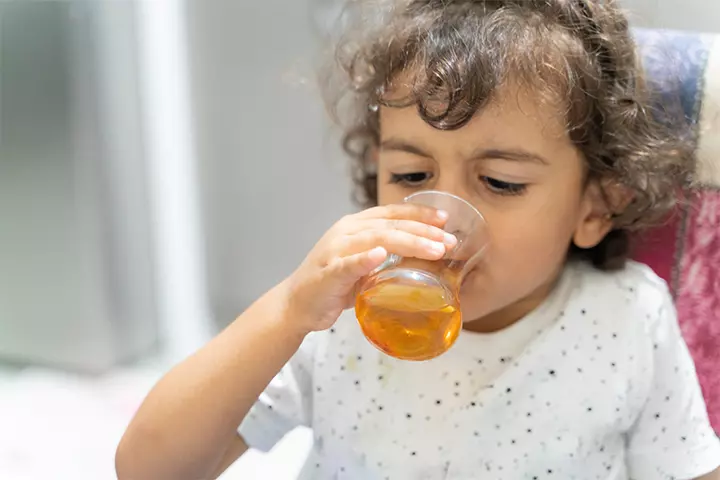
If you are planning to give your child an occasional cup of regular tea, here’s the way to do it.
- Use fewer tea leaves to make a light tea.
- You can also make light tea by steeping the tea or tea bag for two to four minutes. If the tea gets strong, add some water to it.
- Serve lukewarm or chilled tea and not piping hot tea.
- Add a slice of lemon for flavor.
- Consider using honey instead of sugar for sweetness.
 Did you know?
Did you know?Possible Side Effects Of Tea For Children
While popular and offering some health benefits for adults, tea requires special consideration when given to children. Parents should understand these possible effects to make informed choices about whether, when, and how much tea to offer their children. Excessive consumption of tea may result in the following side effects for children.
- Caffeine in tea may affect your child’s development, behavior, and sleep (6).
- Interestingly, a research study conducted on this topic found that regular consumption of tea or coffee by children also increased the risk of type 1 diabetes in them (7). It is essential to monitor tea consumption in children. According to the US Centers for Disease Control and Prevention (US CDC) data, in 2025, approximately 304,000 children and adolescents under 20 had type 1 diabetes (8).
- Regular intake of caffeine could increase children’s preference for cold beverages and sweet foods. Such eating patterns could increase the risk of obesity (9).
- Caffeine in excess could be responsible for fidgetiness, jitteriness, and nervousness in children (10).
- Caffeine and sugar in tea may be associated with overweight issues in children (10).
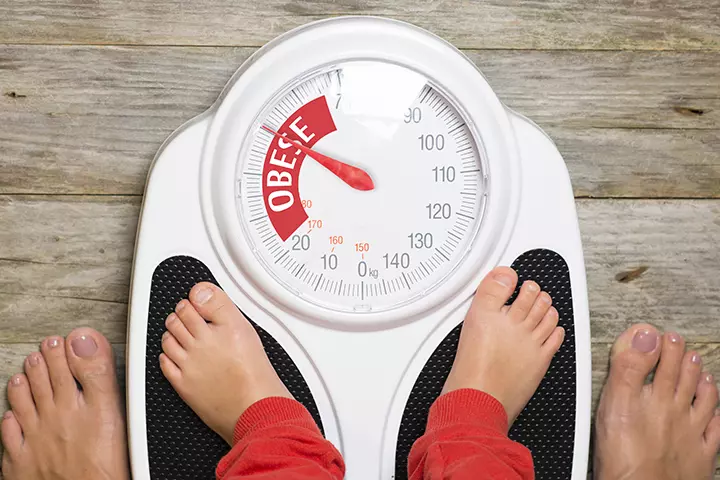
- Drinking sugar-sweetened tea in high amounts could be responsible for extra calories, which might result in heart diseases, tooth decay, obesity, kidney disorders, and even type-2 diabetes (11).
- High caffeine intake has been linked to increased calcium loss in urine and a higher risk of osteoporosis (12). It also reduces non-heme iron absorption and may lead to iron deficiency (13).
- Excessive consumption of tea may also lead to acidity issues.
Various Teas For Children
Pediatrician Dr. Bidisha Sarkar says, “Herbal tea or tea made from herbs and fruits, is typically devoid of caffeine. It serves as a beneficial choice for children aged two and above, aiding in hydration and alleviating mild illness symptoms such as cough, sore throat, and congestion.” The following could be some other tea options you may try as home remedies for some common illnesses.
- Chamomile tea: A study noted that chamomile is used to treat fever, croupiA viral respiratory infection that causes inflammation of the upper airway, leading to breathing difficulty , and coliciPersistent crying in babies without any apparent reason in children (14). It may also help in reducing anxiety and has anti-inflammatory properties (15). But if your child is allergic to marigolds, ragweed, daisies, and chrysanthemums, avoid this tea due to the risk of potential cross-reactivity. Other side effects include nausea and dizziness (16). In any case, use chamomile tea for kids under medical guidance only.
Ginny Kemp, a mom of two and registered medical herbalist, uses chamomile tea for her children. She writes, “For conjunctivitis, cooled, filtered Chamomile tea can be used to bathe the eye throughout the day to soothe and fight infection. I used this for both of my babies (ⅰ).’’
- Ginger tea: A cup of ginger tea could be a good idea to soothe a child’s tummy. It might even help in reducing nausea (4). Dr. Sarkar adds, “Ginger tea is generally safe for children over the age of 2, provided it is prepared correctly and administered in moderation. It can be beneficial for various issues such as digestion, nausea, motion sickness, inflammation, and cough. However, caution should be exercised when giving ginger tea to children with bleeding disorders, diabetes, or heart problems. Additionally, children taking blood thinners or other medications that may interact with ginger should avoid consuming it.”
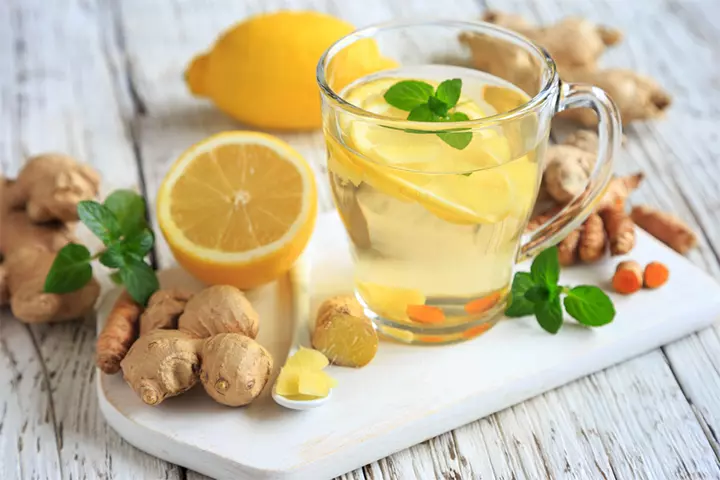
- Fennel tea: It has natural anti-inflammatory and antispasmodic effects, which may help ease bloating, gas, and other digestive issues (17). However, fennel tea may cause allergic reactions in some individuals. Some components in fennel can also increase sensitivity to sunlight (photosensitivity) and trigger seizures (18).
You could consider the above alternatives or even consider not giving tea to the child at all.
Healthy Alternatives To Tea For Children
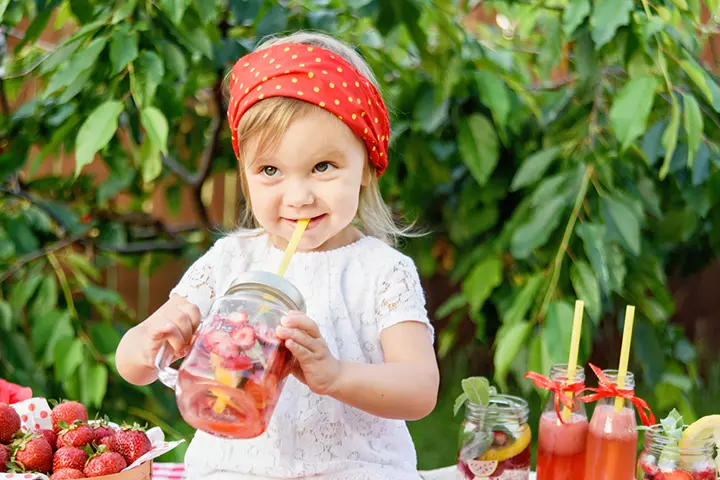
Healthy drinks such as freshly prepared, homemade fruit juices, milk, yogurt drinks, coconut water or lemon water, or flavored water (made with natural ingredients and no added sugar) are healthier alternatives for children. Nutrient-dense broths or soups made from vegetables can also be a comforting and nourishing alternative. These sugar-free and caffeine-free drinks can help them stay hydrated and provide vital nutrients to the body. These sugar-free and caffeine-free drinks can help them stay hydrated and provide vital nutrients to the body.
 Quick tip
Quick tipFrequently Asked Questions
1. Is tea good for hyperactive children?
Tea with caffeine may make children more alert and energetic (19). Green tea for children is also a good option that parents can try to help them feel calm and relaxed. Herbal teas are safer alternatives for relaxing and calming a child (20).
2. Can I give tea to my kid before bed?
No, anything that has caffeine is not suitable for children before bed. Ideally, you should avoid giving them caffeine-containing food six hours before bedtime (21).
3. Which is good for children: tea or coffee?
You should avoid giving excess caffeine to children because it may cause headaches, stomach upsets, or sleep trouble (19). The American Academy of Pediatrics (AAP) suggests young children avoid caffeine (22). Hence, the intake of tea or coffee for kids should be avoided.
4. Can children consume sweet tea?
Dr. Sarkar opines, “Sweet tea is a variety of black tea that gets sweetened with sugar or other sweeteners. Black tea has caffeine, which is not advisable for children. Additionally, sweet tea has high sugar content, which can lead to tooth decay, obesity, diabetes, and various other health issues in children. Consequently, regular consumption of sweet tea by kids is not acceptable.”
Experts do not recommend tea for kids since sweetened and caffeinated drinks often cause dental cavities. Children should consume alternatives to caffeinated drinks, such as milk or other pediatric supplements. Experts also recommend keeping caffeine intake minimum for adolescents and adults. Caffeine in tea can cause developmental issues and sleep problems if consumed excessively. So consult your child’s doctor before giving them caffeinated drinks.
Infographic: Side Effects And Healthy Alternatives Of Tea For Children
Tea is a refreshing and go-to beverage for many. But the caffeine in tea may not be suitable for children’s health, and large quantities of it may even have detrimental effects. Here is a brief overview of the notable side effects of tea and a few tea alternatives for children. Illustration: Momjunction Design Team
Illustration: Tea for Kids- Everything You Need to Know
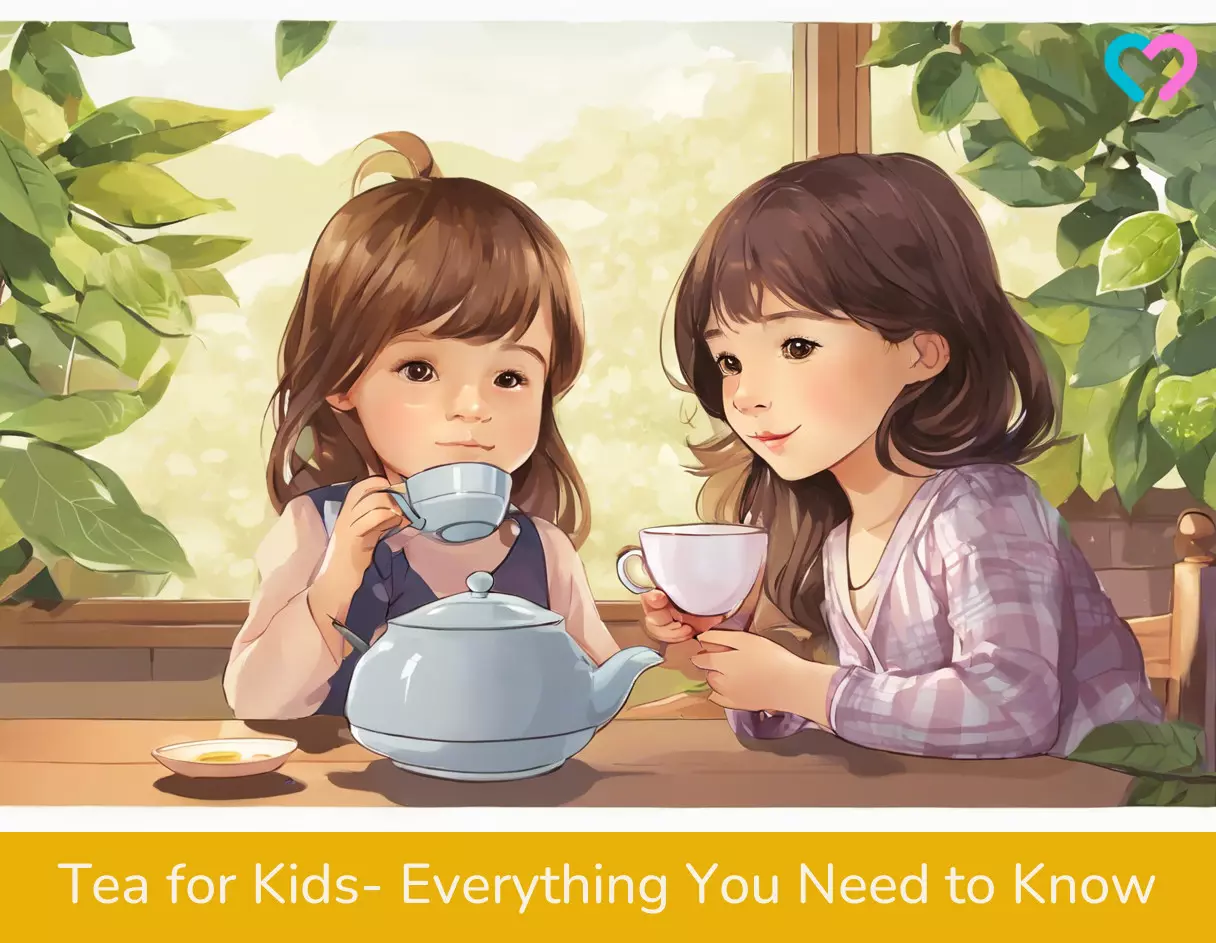
Image: Stable Diffusion/MomJunction Design Team
Personal Experience: Source
MomJunction articles include first-hand experiences to provide you with better insights through real-life narratives. Here are the sources of personal accounts referenced in this article.
ⅰ. Why Chamomile Is My Top Herb For Children. The Herb Clinic;https://www.theherbclinic.co.uk/blog-pages/13/12/2016/chamomile-my-top-herb-for-children-babies
References
- Limit Kids’ Caffeine Intake to Preserve Their Health Your Sanity.
https://healthcare.utah.edu/the-scope/kids-zone/all/2025/02/limit-kids-caffeine-intake-preserve-their-health-your-sanity - Parents Perk Up to the Dangers of Caffeine for Teens.
https://www.michiganmedicine.org/health-lab/parents-perk-dangers-caffeine-teens - Pamela Mason and Tim Bond; (2025); Tea and Wellness throughout Life.
https://sciforschenonline.org/journals/nutrition-food/article-data/NFTOA172/NFTOA172.pdf - Home Remedies for Sick Kids.
https://www.chkd.org/patient-family-resources/our-blog/Home-Remedies-for-Sick-Kids - Tea.
https://nutritionsource.hsph.harvard.edu/food-features/tea/ - The Young and the Restless: Why Kids Should Avoid Caffeine.
https://health.clevelandclinic.org/is-caffeine-bad-for-kids - S M Virtanen et al; (1994); Is children’s or parents’ coffee or tea consumption associated with the risk for type 1 diabetes mellitus in children? Childhood Diabetes in Finland Study Group.
https://pubmed.ncbi.nlm.nih.gov/8039488/ - National Diabetes Statistics Report.
https://www.cdc.gov/diabetes/php/data-research/index.html - Dan Liu et al; (2018); Dietary Patterns and Association with Obesity of Children Aged 6–17 Years in Medium and Small Cities in China: Findings from the CNHS 2010–2012.
https://pmc.ncbi.nlm.nih.gov/articles/PMC6356437/ - Jennifer L Temple; (2009); Caffeine Use in Children: What we know what we have left to learn and why we should worry.
https://pmc.ncbi.nlm.nih.gov/articles/PMC2699625/ - Get the Facts: Sugar-Sweetened Beverages and Consumption.
https://www.cdc.gov/nutrition/data-statistics/sugar-sweetened-beverages-intake.html - Caffeine cuts close to the bone when it comes to osteoporosis.
https://www.unisa.edu.au/media-centre/Releases/2025/caffeine-cuts-close-to-the-bon–when-it-comes-to-osteoporosis/ - Jungun Lee; (2025); Association between Coffee and Green Tea Consumption and Iron Deficiency Anemia in Korea.
https://pmc.ncbi.nlm.nih.gov/articles/PMC10040266/ - Janmejai K Srivastava et al; (2010); Chamomile: A herbal medicine of the past with bright future.
https://pmc.ncbi.nlm.nih.gov/articles/PMC2995283/ - The health benefits of 3 herbal teas.
https://www.health.harvard.edu/nutrition/the-health-benefits-of-3-herbal-teas - Chamomile.
https://www.nccih.nih.gov/health/chamomile - Spill it: Is drinking tea healthy for you?
https://www.osfhealthcare.org/blog/spill-it-is-drinking-tea-healthy-for-you/ - Medicinal Uses for Herbal Teas: Evidence Dosing and Preparation Methods.
https://www.fammed.wisc.edu/files/webfm-uploads/documents/outreach/im/ss_herbal_teas.pdf - Caffeine.
https://kidshealth.org/en/parents/child-caffeine.html - The use of alternative therapies in treating children with attention deficit hyperactivity disorder.
https://pmc.ncbi.nlm.nih.gov/articles/PMC2796535/ - Food Before Bed: What to Offer Kids and When to Hold Back.
https://www.rileychildrens.org/connections/food-before-bed-what-to-offer-kids-and-when-to-hold-back - Is Coffee Bad for Kids?
https://www.hopkinsmedicine.org/health/wellness-and-prevention/is-coffee-bad-for-kids
Community Experiences
Join the conversation and become a part of our nurturing community! Share your stories, experiences, and insights to connect with fellow parents.
Read full bio of Dr. Anuradha Bansal
- Dr. Bidisha Sarkar is a pediatrician with nine years of experience. She did her graduation in Medicine from NRS Medical College, Kolkata and holds specialization in Pediatrics. Dr. Sarkar currently practices at KIMS Hospital in Hyderabad, India.
 Dr. Bidisha Sarkar is a pediatrician with nine years of experience. She did her graduation in Medicine from NRS Medical College, Kolkata and holds specialization in Pediatrics. Dr. Sarkar currently practices at KIMS Hospital in Hyderabad, India.
Dr. Bidisha Sarkar is a pediatrician with nine years of experience. She did her graduation in Medicine from NRS Medical College, Kolkata and holds specialization in Pediatrics. Dr. Sarkar currently practices at KIMS Hospital in Hyderabad, India.
Read full bio of Swati Patwal
Read full bio of Rohit Garoo
Read full bio of Dr. Joyani Das





